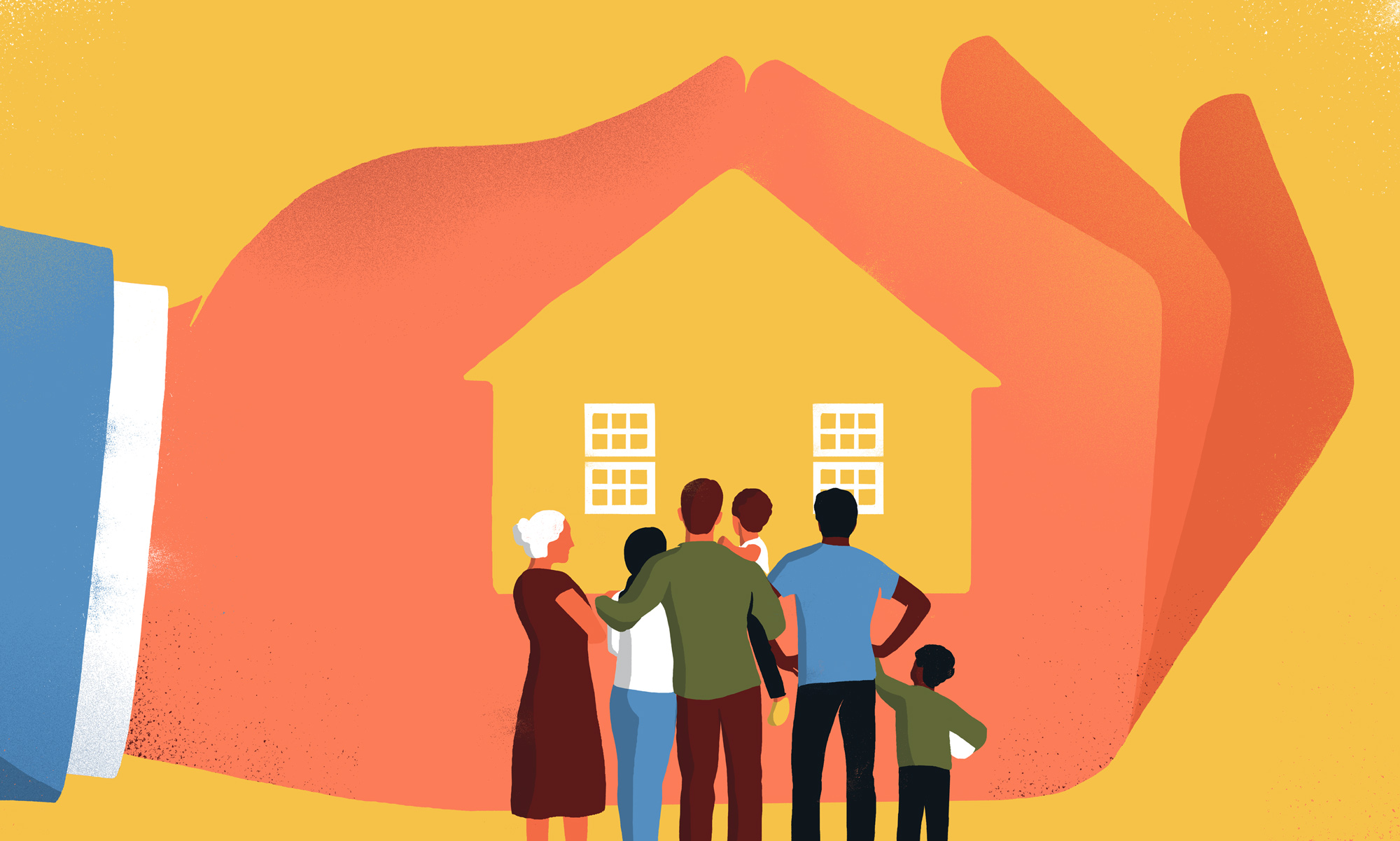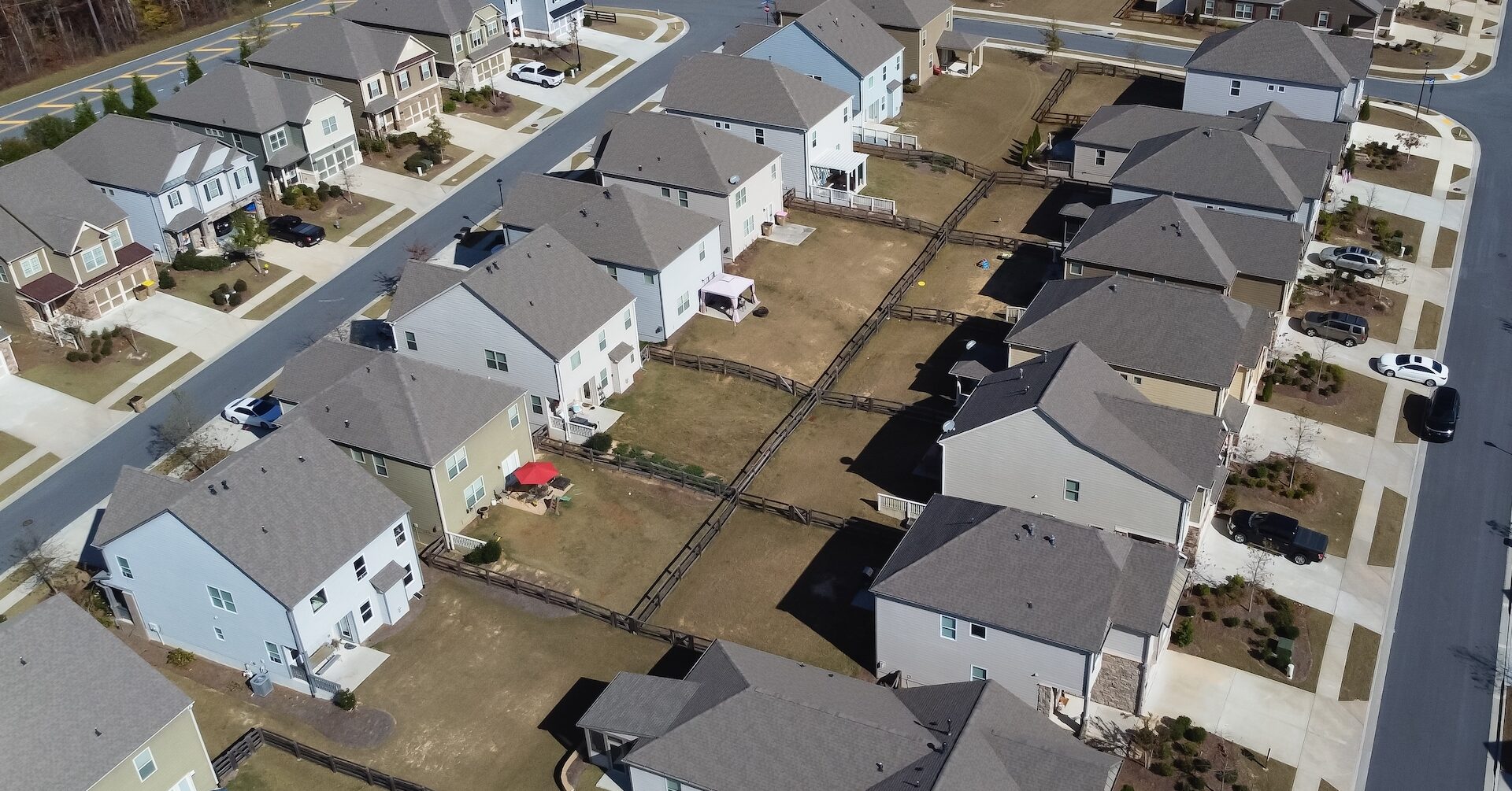
How much can I afford on my income?

Let's state you make $100,000 a year, which is $8,333 monthly. By utilizing the 28 percent guideline, your mortgage payments need to include up to no greater than 28 percent of $8,333, or $2,333 per month.

However, there are a great deal of aspects that can impact your monthly mortgage investment, including what sort of loan you have, your rates of interest, the expense of residential or commercial property taxes and homeowners insurance coverage in your location, and whether you'll have HOA costs to pay. And don't forget you 'd likewise require to pay a down payment and closing costs upfront, while keeping adequate leftover to cover routine maintenance, upkeep and any emergency repairs that may occur.
Does the quantity of my deposit impact how much home I can afford?
The down payment is an important component of home price. The more you put down in advance, the less you require to borrow - so by making a larger deposit, you lower your loan-to-value ratio, that makes a difference in how your loan provider looks at you in terms of danger. Bankrate's mortgage calculator can help you explore how various purchase rates, rates of interest and minimum down payment amounts effect your regular
monthly payments. And do not forget to believe about the capacity for mortgage insurance premiums to affect your spending plan. If you make a down payment of less than 20 percent on a standard loan, you'll require to spend for private mortgage insurance, or PMI.
Does the kind of mortgage effect price?
While it holds true that a bigger deposit can make you a more attractive buyer and debtor, you might be able to get into a new home with a lot less than the typical 20 percent down. Some programs make mortgages available with as low as 3 percent or 3.5 percent down, and some VA loans are even readily available with no money down at all.
Just how much home can I manage with an FHA loan?
Federal Housing Agency mortgages are offered to property buyers with credit rating of 500 or more and can help you enter a home with less cash down. If your credit score is listed below 580, you'll require to put down 10 percent of the purchase price. If your score is 580 or greater, you might put down as little as 3.5 percent. There are limits on FHA loans, however. In the majority of locations in 2024, an FHA loan can not exceed $498,257 for a single-family home. In higher-priced areas in the continental U.S., the number can go as high as $1,149,825. Alaska and Hawaii both have even greater limitations. As you crunch the numbers, you'll also require to element in how mortgage insurance premiums - needed on all FHA loans - will affect your payments.
Just how much home can I pay for with a VA loan?
Eligible active duty or retired service members, or their spouses, may get approved for down payment-free mortgages from the U.S. Department of Veterans Affairs. These loans have competitive mortgage rates, and they do not need PMI, even if you put less than 20 percent down. Plus, there is no limitation on the quantity you can borrow if you're a newbie property buyer with full entitlement. You'll require to also think about how the VA funding charge will add to the expense of your loan.
Just how much house can I afford with a USDA loan?
USDA loans require no down payment, and there is no
limitation on the purchase rate. However, these loans are geared toward buyers who fit the low- or moderate-income category, and the home you buy must be within a USDA-approved backwoods.
Does where I live effect how much home I can afford?
Where you
live plays a major function in what you can invest in a home. For example, you 'd have the ability to buy a much bigger piece of
residential or commercial property in St. Louis than you could for the same rate in San Francisco. You must likewise think of the location's overall expense of living. If you reside in a town where transportation and utility costs are fairly low, for example, you might have the ability to take some additional space in your spending plan for housing expenses.
I'm a first-time homebuyer. Just how much can I pay for?
Being a first-time property buyer can be particularly difficult: You're paying rent, so how can you manage to save cash for a down payment at the exact same time? Recent data from the National Association of Realtors shows that the share of newbie property buyers in the market is at a historical low. Between the midway point of 2023 and the midway point of 2024, simply 24 percent of purchasers were buying their first home. Those first-time purchasers had an average income of $97,000. Based upon regular monthly revenues of $8,083, that indicates the normal first-time purchaser ought to be spending no more than $2,263 each month.
If you're struggling to make the mathematics work as a novice buyer, there's some good news: There are many deposit support programs created particularly for you. Depending on where you live and how much you make, you might be able to qualify for a grant, low-interest loan or forgivable loan to aid with your down payment and/or closing costs.
How to enhance your home price
Before you start taking a look at realty and shopping around for the ideal lender, it is essential to take these actions to enhance your chances of ending up being a house owner without breaking the bank.
Work to enhance your credit rating: Boosting your credit rating is the very best method to put yourself in a position for the most affordable mortgage rate possible. Pay for your charge card and avoid making an application for any extra accounts as you prepare to look for a mortgage.
Improve your debt-to-income ratio: Work to decrease your debts. You might also concentrate on making your earnings bigger by negotiating a pay raise at your current task or getting a sideline for additional incomes. Either method, you will show to a loan provider that you have more money, which makes you less of a risk.
Develop a bigger down payment: The more you can contribute upfront, the less you require to borrow. Your deposit doesn't all have to come from your own cost savings, either. If you have a family member or buddy who can pay for to, they might provide you a gift to add to your deposit. They will need to sign a letter mentioning that the cash is a real gift - not a loan that you'll need to repay.
Consider other places: You may have your heart set on a particular community or a particular city, however flexibility is key. If you can cast a wider internet, you will open yourself approximately places where home prices are lower.
Find out just how much space you truly require: Do you need a 3,500-square-foot home with a sprawling backyard? If this is your very first time purchasing a piece of residential or commercial property, possibly a starter home is a much better bet for your checking account. If you're years far from having a family, you can constantly begin little, develop equity and sell to discover a larger home when you're prepared. Additionally, consider looking at condos, which have a cheaper mean price than single-family homes.
What other elements effect home
affordability?
Be gotten ready for residential or commercial property taxes: When you
purchase a home, you assume the tax liabilities that come with it. So, in addition to settling your mortgage, you'll require to consider the residential or commercial property taxes that cover your contribution for federal government services like a cops department, firefighting services and public schools. That bill varies commonly based upon your residential or commercial property's evaluation and where it lies. For example, the typical residential or commercial property tax expense for a single-family home in New Jersey was $9,488, according to information from ATTOM. That figure is almost 10 times the typical $989 residential or commercial property tax bill for homeowners in West Virginia.
Reserve an emergency fund: Life happens - and often, that indicates bad things occur. In addition to making your regular mortgage payments, you'll require to store money in case, for instance, you lose your job. Your
emergency fund provides a layer of security in a
worst-case scenario.
Budget for continuous repair-and-maintenance costs: When you're a tenant, a plumbing issue is your landlord's duty. When you're an owner, it's yours. Just how much you'll need to spend depends upon how old the home is, however even brand new building and construction will require ongoing financial investment for maintenance.
Look around for house owners insurance: When you purchase a house, you require to make sure it's protected in case of a catastrophe. Homeowners insurance premiums differ commonly depending upon what you need in your policy and where you live. They are specifically high - and in many cases, extremely difficult to discover - in states prone like Florida and California. Make certain to
compare numerous quotes to get solid coverage at a decent price.
Should I buy a home now or wait?
Home costs have soared in current years, and mortgage rates have yet to use any real relief. It's sufficient to make you question whether now is even an excellent time to buy a house. It's important to concentrate on your personal scenario instead of considering the total realty market. Is your credit rating in fantastic shape, and is your total debt load workable? Do you have enough savings that a down payment won't drain your bank account to zero? If your personal finances are in outstanding condition, a lending institution will likely have the ability to give you the very best offer possible on your rates of interest.
It's not almost money, though. Think about what's on the horizon for you. Are you comfy planting roots for the foreseeable future? The longer you can remain in a home, the easier it is to validate the expenses of closing expenses and moving all your possessions - and the more equity you'll have the ability to construct.

Don't let increasing home rates immediately scare you away. Having the ability to buy a residential or commercial property starts with these questions:
Do you pay your expenses on time? A history of no late payments will make you look good in the eyes of any lending institution. They'll understand that they can anticipate to receive your mortgage payment every month when it's due. Do you have proof of stable earnings? If you have a consistent job that deposits a similar amount into your bank account every 2 weeks, you're in good
condition. Lenders will examine your bank accounts, review current pay stubs and look at your tax kinds. If you're self-employed or make
irregular earnings, you'll need to reveal even more proof of your profits - most likely the previous two years of income tax return.
Do you have a low debt-to-income ratio and a high credit score? If you're making a lot more money than you're repaying for other debt, with a credit report that shows you're credit-worthy, you remain in a good position.
What's the very best mortgage rate you can get? The lower your rate, the more you'll minimize interest payments. Fortunately: If you responded to yes to the previous 3 concerns, you'll likely certify for the most affordable rates a lender can offer.
